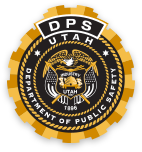Fraud – Frequently Asked Questions
The Special Investigations Section conducts criminal investigations involving “White Collar” and other financial crimes. These include money laundering, fraud schemes, mortgage fraud, forgery and theft by deception.
Why should I report a fraud?
The con artist’s goal is not only to take your money, but also to have you feel shame, guilt and fear. Those feelings make you less likely to report a crime. However, if you don’t file a report there is no chance to recover your loss and you make it easier for them to do it to someone else.
How can I best protect my financial documents?
Treat your checks, bank statements and credit cards as if they were cash. Shred old statements, cancelled checks and credit card receipts. Be careful not to throw away anything with your account number on it. Check your bank and credit card statements closely to see if there are any charges you don’t recognize.
Can someone gain control over my bank account if I give them my account number?
All personal information can be used against you. Your financial account information should be closely guarded and only released if you are absolutely sure it is safe. Your account information can be used by an experienced criminal to gain access to your account within five minutes.
I heard about an investment opportunity that sounds too good to be true. Should I invest?
If it sounds too good to be true, it probably is. In thousands of cases across the nation high commissions are luring individuals to invest in prime bank notes, promissory notes, real estate developments as well as many other so called “investment opportunities”. Be leery of investments that guarantee you a high interest rate in a short period of time. If you have questions whether someone is licensed to sell securities contact your State Division of Securities.
Where can I find the current laws that apply to fraud?
Utah Code 76-6-501 through 76-6-705
Identity Fraud 76-6-1101
http://le.utah.gov/UtahCode/chapter.jsp?code=76
